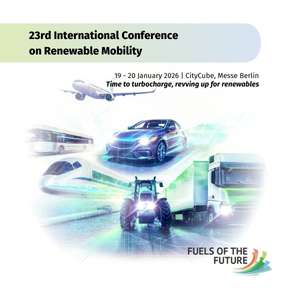Oil from recycled tyres offers same engine performance for less emissions, new study finds
Exhaust emissions from oil from recycled tyres have been found to have 30% less nitrogen oxide, which contributes to photochemical smog and lower particle mass than oil from fossil sources, but almost the same performance, according to research conducted by the Queensland University of Technology.
Australia-based QUT mechanical engineers tested the oil that, when blended with diesel in small percentages, gives a fuel that reduces emissions and with no loss of engine performance.
The percentage of fossil fuel was varied during the tests and will continue to be in subsequent testing, QUT said in a statement.
The tyre oil comes from new tyre recycling technology and is a world breakthrough that was developed by Australian company Green Distillation Technologies.
The process recycles end-of-life tyres into oil, carbon and steel, leaving nothing wasted and even uses some of the recovered oil as the heat source.
GDT collaborated with QUT mechanical engineer Professor Richard Brown and PhD student Bangladeshi-born Farhad Hossain to test the oil for emissions and performance at the QUT Biofuel Engine Research Facility.
“There are 1.5 billion tonnes of tyres discarded globally each year and Australia, alone, generates around 55 million disused tyres a year by 2020, while the USA more than 200 million,” Hossain said.
He added: “Getting rid of old tyres in an environmentally-friendly way is a universal nightmare for authorities. Stockpiles of used tyres around the world are a health hazard, as demonstrated by the recent Broadmeadows fire in Victoria which was difficult to put out and generated huge amounts of toxic smoke and in tropical areas old tyres are a breeding ground for mosquitoes that carry the Zika virus, dengue fever and malaria.”
Hossain said QUT engineers performed rigorous tests on the GDT tyre oil produced from recycled tyres in both 10 and 20% diesel added blends.
He explained: “We tested the tyre oil blends in a turbocharged, common rail, direct injection, six-cylinder engine at the Biofuel Engine Research Facility at QUT. The engine is typical of engine types used in the transport industry.
“Our experiments were performed with a constant speed and four different engine loads of 25, 50, 75 and 100% of full load.
“We found a 30% reduction in nitrogen oxide which contributes to photochemical smog, and lower particle mass which means fewer problems for emission treatment systems. We also found the performance of the oil blends were consistent through all of the blends and will continue this testing in subsequent research.”
Green Distillation Technologies COO Trevor Bayley said that up to this stage they had believed the oil from the recycled tyres could be used without refinement as a heating fuel or further refined into automotive or aviation jet fuel, but the QUT research could change this assumption.
He explained: “We are delighted at the findings of the QUT research as it will help us promote the sustainable use for end-of-life tyres, as it has already been found by refinery Southern Oil that our oil from recycled tyres has been overlooked as a potential biofuel source, yet they say it is the most reliable and easiest to refine of all.
“They have said that the future potential of this source of feedstock is immense, in fact preferable to other bio-oils from plants or algae, plus it will reduce Australia’s dependence on imported fuel and it is an excellent example of converting an environmental waste problem into a valuable raw material.
“A recycled 10kg car tyre will yield 4kg of carbon, 1.5kg of steel and 4 litres of oil while the 70kg truck tyre provides 28 kg of carbon, 11 kg of steel and 28 litres of oil.
“We have operated a pilot plant in Warren in Western New South Wales since 2009 and we plan to upgrade to a full production plant which will see it capable of processing 19,000 tonnes, or a mix of 658,000 car and truck tyres per year.”
Heavy duty mining dump trucks
Bayley added: “We have been studying the logistics of how to handle those extra-large ‘off the road’ tyres (OTRs) that are used by heavy duty mining dump trucks, large agricultural tractors and road making equipment. The 2013-14 Hider Report estimated that each year there are 155,000 tonnes of these OTR end-of-life tyres of various sizes generated in Australia of which 79.4 per cent are left on site as there are no means of recycling them.
“We attended the international mining industry expo in Los Vegas in September and found enormous interest in our process from other countries with the same oversize tyre disposal problem, such as Canada, the United States, Mexico, Brazil and the other South American countries where mining is a major industry.
“GDT plans to have the first fully operational commercial plant delivering 8 million litres of oil per year commencing mid-2017, followed by the first in the world mining tyre processing plant in either Qld or WA.”











